Category: Amazing Plants
-
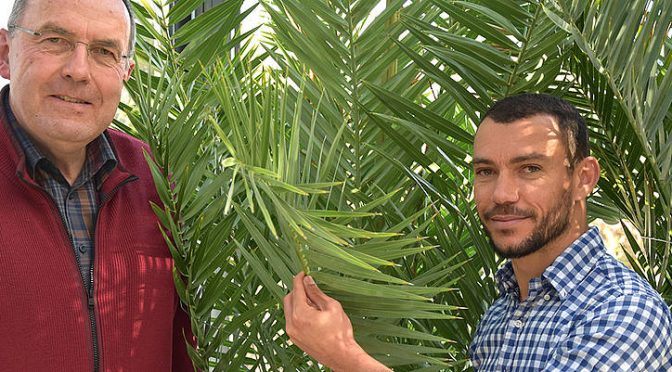
Date Palms Survive Extreme Heat Thanks To Their Specialized Waxy Coating
Because the palm does not “sweat”, its leaves sometimes reach extremely high temperatures: they can be 11 degrees Celsius above the air temperature. How can it be that the leaves do not dry out at these high temperatures? (Click on title for full story)
-
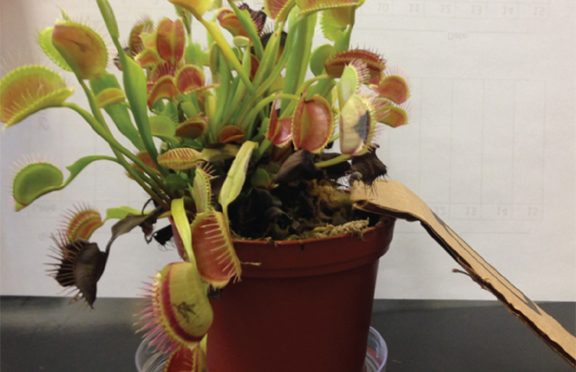
Those Spikes On Venus Flytrap Traps… What Do They DO?
The nonlinear benefit of spikes suggests that they provide a better cage for capturing more abundant insects of moderate and small sizes, but they may also provide a foothold for rare large prey to escape. (Click on title for full story.)
-
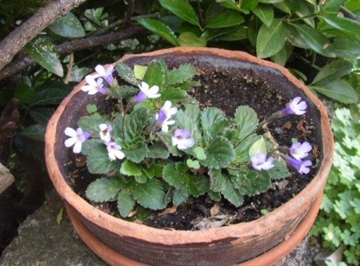
“Resurrection” Plants Are Amazing, But How Do They Manage It?
This research showed for the first time that the structure of water, not its content, is what matters to the survival of the organism. When people think about life, we often associate dynamic features with the processes in living systems. And yet, in this peculiar plant, in the absence of visible signs of ongoing metabolism, achieving a specific water structure was its survival tool. (CLick on title for full story.)
-
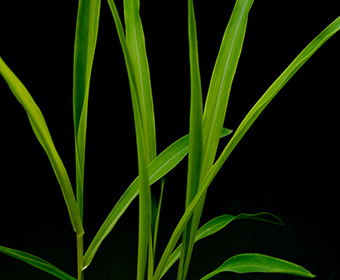
What Doesn’t Kill Us: Plants Are Strengthened By Stress
The exact mechanism a plant deploys to produce metabolic resources for temporary GLV defense during an attack is still not known. Nevertheless, a plant’s ability to quickly recoup growth after deploying GLV offers a clue about plant resiliency. (Click on title for full story.)
-
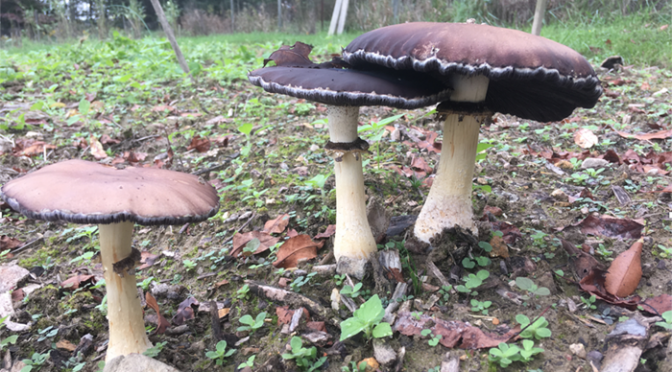
Charting The Long Frenemy Relationship Between Plants And Fungi
The authors noted that although interactions between fungi and plants, including parasitism, mutualism (beneficial to both organisms), and saprotrophy (obtaining nutrients from dead plant parts), have been invoked as key mechanisms to their success, no one has explored contemporaneous evolutionary events throughout their history. (Click on title for full story.)
-
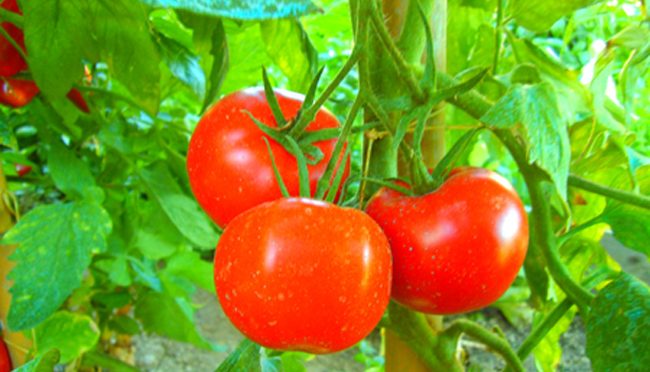
Tomato Plants Emit An Odor That Can Be Used To Protect Crops
Tomato plants emit an aroma in order to resist bacterial attacks. This aroma– volatile compound –is named hexenyl butyrate (HB) and, …has great potential for protecting crops from infections, drought, etc. (Click on title for full story.)
-

They Can Smell You Coming: New Research In Plants’ Olfactory Sense
“Plants can’t run away, so of course they react to odors more slowly than animals. If plants can prepare for environmental change within the same day, that is probably fast enough for them,”(Click on title for full story.)
-
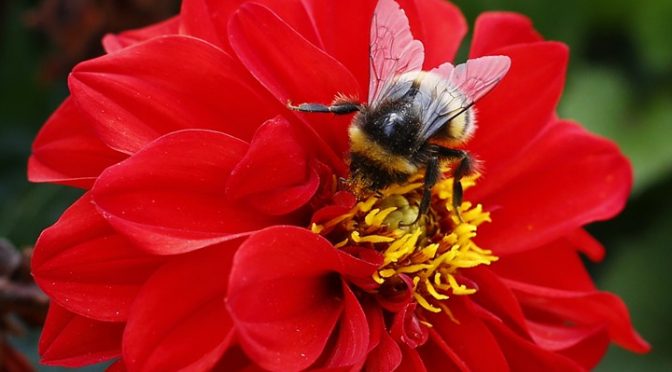
Research Shows Plants Can “Hear” And Also “Speak”
They showed that some plants can hear the sounds of animal pollinators and react by rapidly sweetening their nectar. ..they found that other plants make high-pitched noises that lie beyond the scope of human hearing but can nonetheless be detected some distance away. (Click on title for full story.)
-
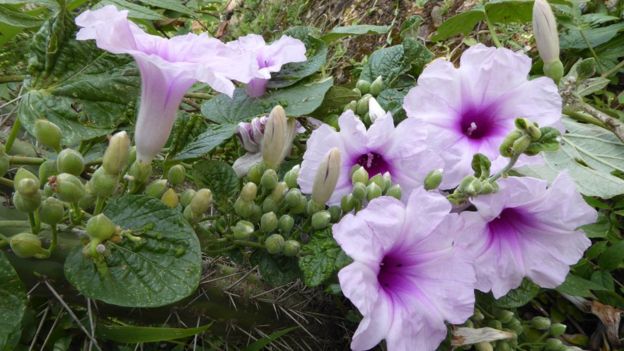
Amazing Newly Discovered Wild Plants Of 2018
Plant collectors have searched for the hidden wonders of the plant world for centuries.Yet plants that are new to science are still being described, at a rate of about 2,000 a year. Scientists at the Royal Botanic Gardens, Kew, discovered and named more than 100 new plants in 2018. Their list of the top new plants includes carnivorous pitcher plants, exotic orchids and climbers with untapped medicinal powers. (Click on title for full story.)
-

This Humble Plant Spreads By Riding A Duck’s Digestive Tract
Duckweeds are humble-looking plants whose tiny, brilliant green globules spangle ponds all over the world. Some duckweeds are the smallest flowering plants in nature. Scientists working in Brazil have just discovered that one duckweed, Wolffia columbiana, has a surprising talent. (Click on title for full story.)
